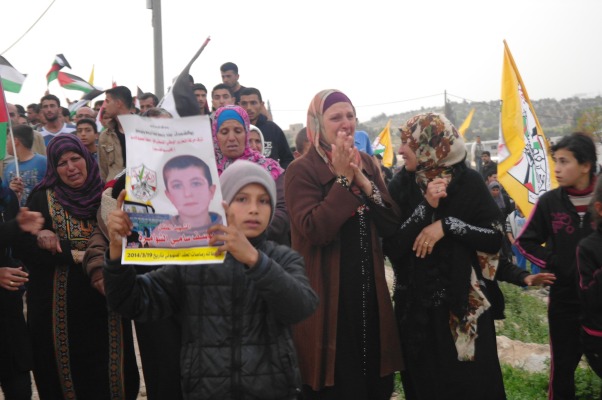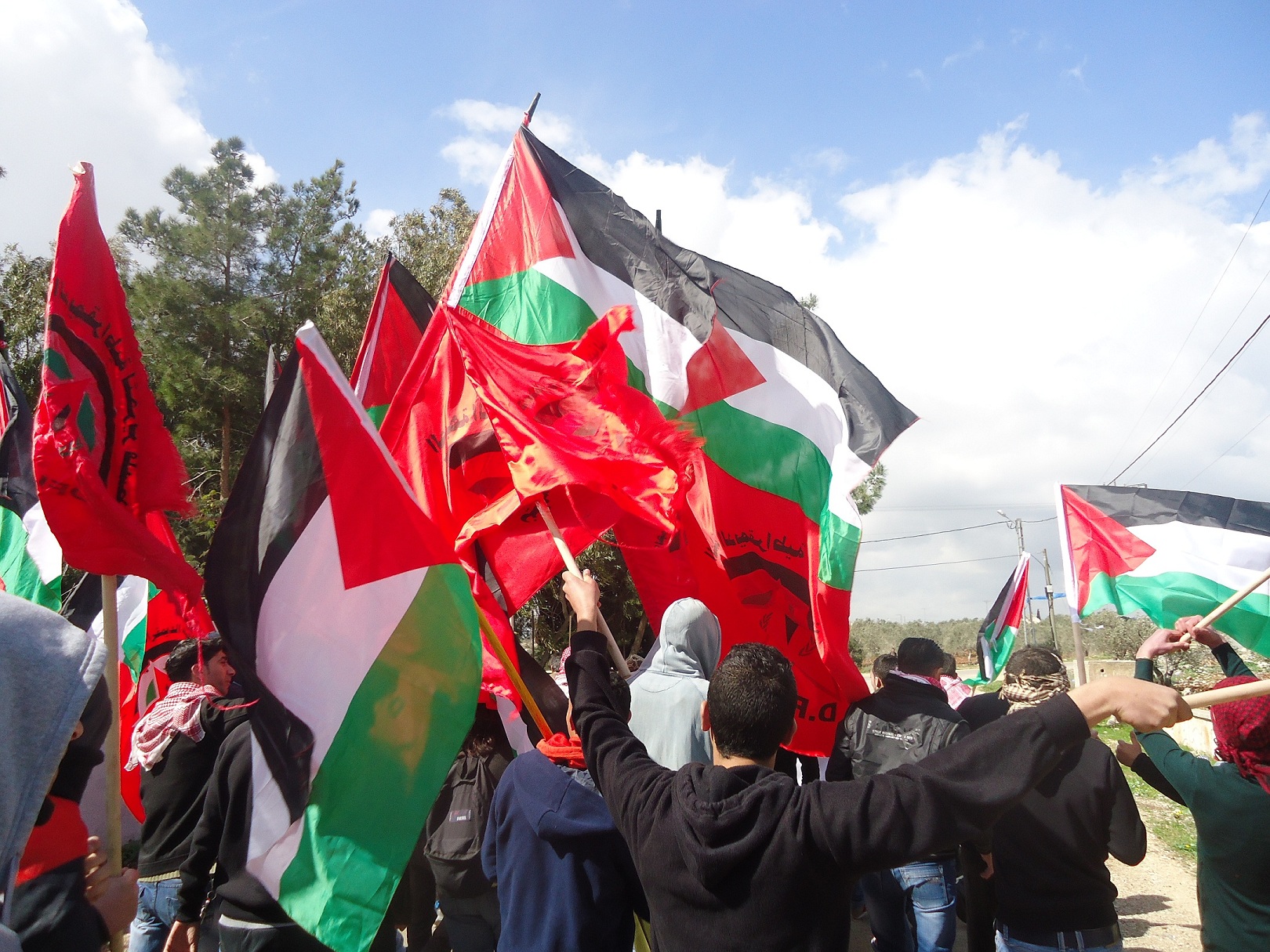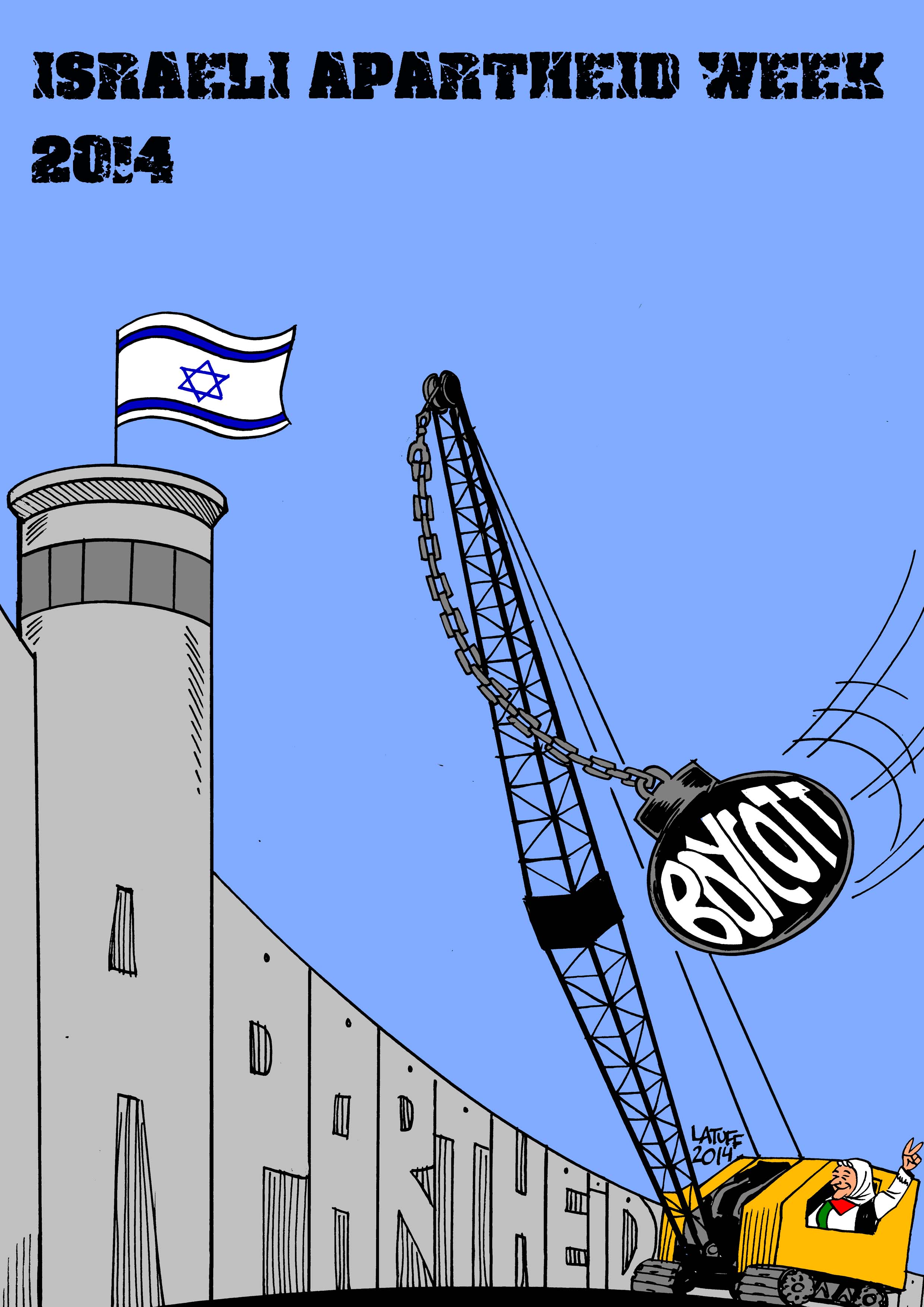Tag: Apartheid Wall
-
15-year-old boy murdered by Israeli forces
20th March 2014 | International Solidarity Movement, Khalil Team | Hebron, Occupied Palestine Early yesterday morning, 15-year-old Yousef Shawamri was shot dead by Israeli soldiers near the village of Deir Al-Asal al Fauqa. Yousef and two of his friends were trying to pass though a hole in a wire fence to reach Palestinian land that…
-
Palestinian shot by live ammunition during demonstration in Tura
15th February 2014 | International Solidarity Movement, Nablus Team | Tura, Occupied Palestine On Saturday, February 15th, Demonstrators gathered at 11:30 a.m. by the village of Tura near the annexation wall to celebrate the 25th anniversary of the DFLP (Democratic Front for the Liberation of Palestine). People began chanting and marching in the direction of the checkpoint.…
-
Announcing Israeli Apartheid Week 2014
14th February, 2014 | Israel Apartheid Week | Various Locations Israeli Apartheid Week (IAW) seeks to raise awareness about Israel’s apartheid policies towards the Palestinians and to build support for the growing Boycott, Divestment, and Sanctions (BDS) campaign. Reflecting the global grassroots rejection of Israel’s military and political aggression, IAW was held in more than 200 locations…



